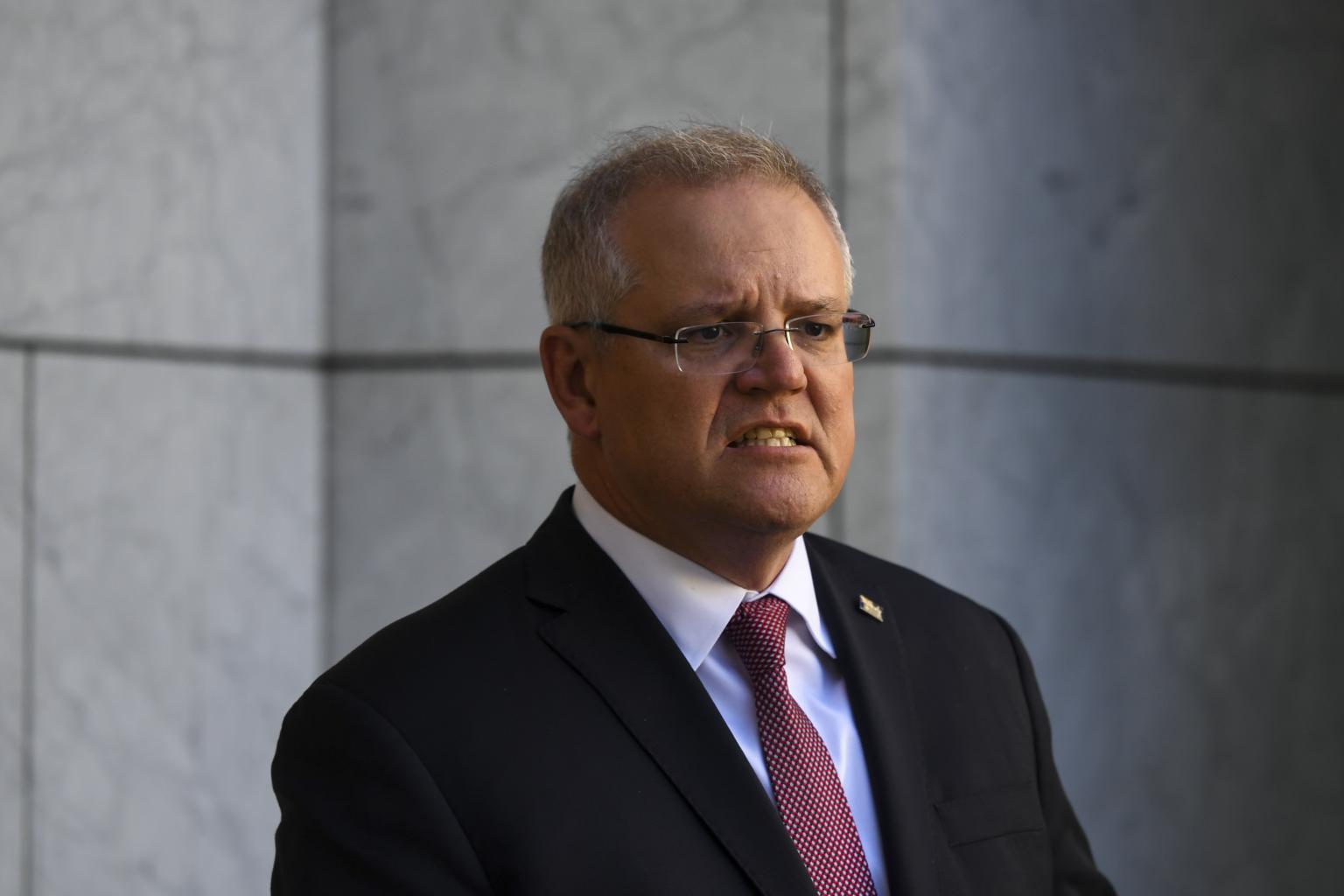Coronavirus pandemic
Aussie PM says borders could be closed till mid-2021
Morrison hopeful over travel bubble with New Zealand, says other nations keen as well
Sign up now: Get insights on Asia's fast-moving developments

Australian Prime Minister Scott Morrison said he remained hopeful of forming a travel bubble with New Zealand.
PHOTO: EPA-EFE
SYDNEY • Prime Minister Scott Morrison signalled yesterday that Australia's borders could remain closed to most international visitors until the middle of next year as the coronavirus crisis escalates across the world.
Mr Morrison was asked whether he shared the view of Qantas chief executive Alan Joyce that there was little chance of travelling overseas for at least 12 months.
"As you look around the world and you see the intensity of the virus escalating, not decelerating, then I think it is not unreasonable for Alan Joyce to form the view he has," the Prime Minister told reporters yesterday after a meeting of the Cabinet.
"No one really knows and that's the problem."
Mr Morrison said he remained hopeful of forming a travel bubble with New Zealand and noted that other nations had expressed an interest in reaching similar arrangements, given Australia's success in largely containing the virus.
"That doesn't necessarily mean that they will be invitations we take up," he said.
Australia closed its borders to non-residents in March and has previously said they are likely to remain shut until the end of the year.
Qantas on Thursday announced that it would cut 6,000 jobs and ground its entire fleet of 12 Airbus A-380 superjumbos for at least three years, because of the bleak outlook for international travel.
Mr Joyce told Australian Broadcasting Corp that "it's very clear that the borders won't be open for a long time" due to the spread of Covid-19 across the world.
"Even if we find a vaccine, it will be some time before that's active," he said. "So we think a prudent assumption is some time in the middle of next year. It could be May, it could be June, it could be July, it could be later."
While Australia has been generally successful in limiting the spread of the virus, it is battling a serious outbreak in Victoria, the nation's second most populous state.
Officials reported 30 new coronavirus infections in Melbourne overnight - the 10th straight day of double-digit rises in new cases in the city and surrounding Victoria state, while most other Australian regions have seen no or low single-digit new infections for weeks.
Victorian health workers have launched a major virus testing blitz across 10 Melbourne suburbs accounting for the majority of new cases, and the army was due to deploy around 200 troops this weekend to help with the operation.
While the number of new cases is relatively low compared with soaring tallies elsewhere in the world, the Melbourne outbreak has sparked fears of a second wave of the epidemic as most parts of the country push ahead with relaxing restrictions on business, public gatherings and travel.
Meanwhile, Woolworths and Coles, Australia's two biggest supermarket chains, said yesterday that they were reimposing nationwide quotas on purchases of toilet paper and paper towels, to counter a surge in panic buying not seen since the first days of the coronavirus outbreak in March.
"While the demand is not at the same level as Victoria, we're taking preventative action now to get ahead of any excessive buying this weekend and help maintain social distancing in our stores," Woolworths said in a statement.
Mr Morrison's chief health adviser played down the likelihood that the Melbourne outbreak would evolve into a broader second wave of infections. Dr Brendan Murphy added, however: "We're very likely to see more such outbreaks, not just in Victoria - it could be anywhere in the country."
Australia has recorded about 7,500 coronavirus cases and 104 deaths in a population of 25 million, with several regions believed to be effectively virus-free.
BLOOMBERG, AGENCE FRANCE-PRESSE


